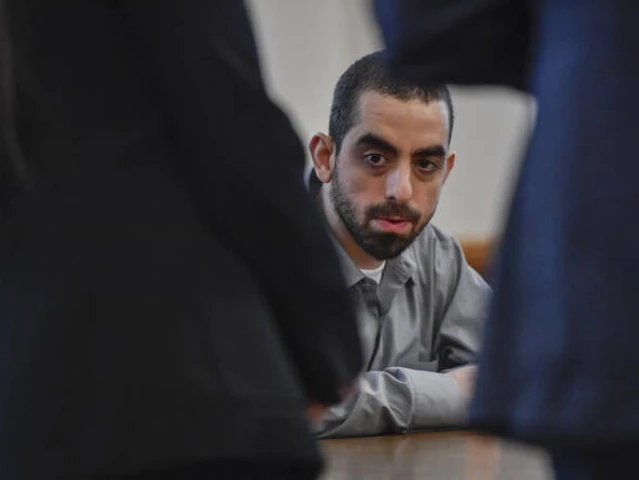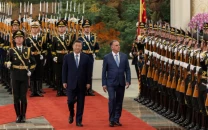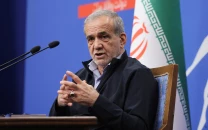Salman Rushdie attacker sentenced to 25 years in prison
Hadi Matar convicted of attempted murder in 2022 stabbing on New York stage, leaving the author blind in one eye

The man who stabbed author Salman Rushdie during a live lecture in New York in 2022 has been sentenced to 25 years in prison.
Hadi Matar, 27, was convicted in February of attempted murder and assault after launching a knife attack on the prizewinning novelist at the Chautauqua Institution, a cultural retreat in western New York. The assault left Rushdie blind in one eye and with multiple serious injuries.
Rushdie, now 77, did not attend Friday's sentencing hearing but submitted a victim impact statement. He had testified during the trial, describing the attack in vivid detail. "I thought I was dying," he told the court, recounting how Matar stabbed him repeatedly in the head and torso as he was being introduced onstage to speak about writer safety.
Before his sentencing, Matar addressed the court, framing his actions as a response to what he called Rushdie’s "hypocrisy" on freedom of speech. “He wants to bully other people,” Matar said, appearing in jail uniform and handcuffs.
Judge David Foley imposed the maximum sentence of 25 years for the attempted murder charge, and an additional seven years for injuring another man on stage during the attack. The terms will run concurrently, as both victims were hurt in the same incident.
Prosecutor Jason Schmidt argued for the full sentence, telling the court Matar had planned the assault to "inflict the most amount of damage." Defence attorney Nathaniel Barone, highlighting Matar’s previously clean criminal record, argued for a 12-year sentence and suggested the wider audience should not be considered victims.
Rushdie spent weeks recovering in hospital and rehabilitation. His memoir Knife, published earlier this year, recounts the attack and its aftermath.
Matar, a U.S. citizen from New Jersey, now faces a separate federal trial on terrorism-related charges. Prosecutors say he was motivated by a decades-old fatwa issued by Iran’s Ayatollah Khomeini after the publication of The Satanic Verses, Rushdie’s controversial 1988 novel. The fatwa called for Rushdie’s death, and while Iran later distanced itself from enforcing it, Matar reportedly believed it was still valid and endorsed by Hezbollah leadership.
Matar has pleaded not guilty to charges of providing material support to terrorists and engaging in terrorism that crosses national boundaries. His federal case is expected to explore his alleged ideological motivations in greater depth.





















COMMENTS
Comments are moderated and generally will be posted if they are on-topic and not abusive.
For more information, please see our Comments FAQ